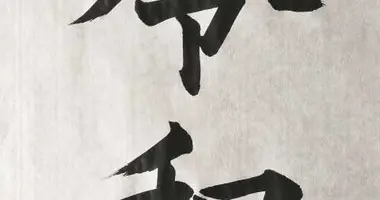In Japan, you never say no 断り方

The Japanese have several formulas to signify a refusal
Pixabay
The art of declining
It is sometimes difficult for those who express their thoughts clearly... but the Japanese rarely say "no" directly. There's cultural diplomacy involved when one declines: Discover Japanese-style diplomacy.
In Western countries, we will tend to opt for honesty, even if it means offending someone at times. Japan, on the other hand, is very bad at saying "no" directly. Moreover, iie, the translation of "no" in Japanese, is rarely used to refuse. Neither does kotowaru, which means "to refuse".
However, you will not be able to say yes to all of them, otherwise, you will find yourself committed to various promises. Here are some tips on how to politely refuse in Japanese.
Don't lose face
This is basic politeness that falls under the concept of honne/tatemae. Indeed, directly refusing a person's invitation will risk embarrassing them, or even making them lose face! This is unthinkable in Japan.
The Kings of Diversion
Thus, a Japanese will show great ingenuity and will use many subtle expressions to refuse an invitation. Real diplomats!
We will therefore regularly hear expressions like "Let me think about it" or "I'll see". In this case, no need to count on any commitment: it's already seen, the proposal is refused.
Decline a proposal
We offer you a dinner with colleagues but you have only one desire: to slip under your duvet and watch the new episode of your favorite series. Don't panic, just answer 今日はちょっと... (kyô wa chotto...) which means "Today is a little...". Chotto, whose basic meaning is "a little", also plays the role of a gentle no. In any case, you can also use それはちょっと... (sore wa chotto...): that's a bit... And if you embellish your sentence with a contrite air, it's still better!
Another formula, more popular among young people, is to say 微妙です bimyo desu, which could be translated as "It's delicate/difficult".
Refuse what you are offered
You are offered a second glass of wine, but you have had enough to drink. In the street, you are handed an advertising insert, but you don't want it. In this case, you can answer 結構ですkekko desu, which corresponds to our "No, thank you".
During a meal, it can also happen that your host serves you an ingredient that you hate or to which you are allergic. You can then say nicely to him, for example, Natto wa nigate desu. It means "I have a little trouble with nattô ".
At the supermarket, you can refuse the plastic bag with a fukuro wa irimasen (I don't need a bag).
Always use euphemisms
If you are asked questions, for example about your tastes, prefer to answer in an attenuated way. For example, if you don't like sushi, it's better to say "I don't like sushi" (sushi wa amari suki ja arimasen) rather than "I don't like/hate sushi" (sushi wa kirai, even if you hate them!









